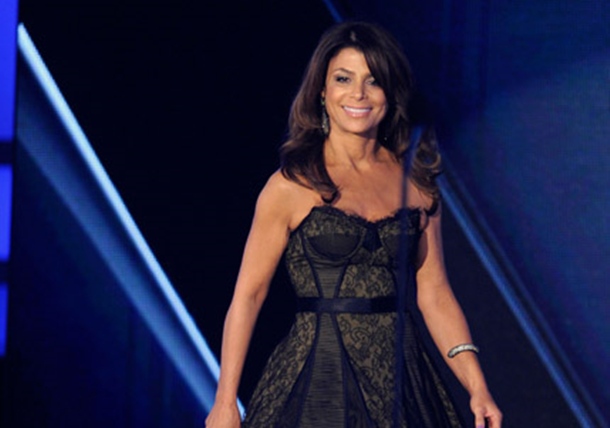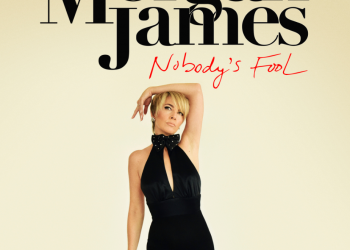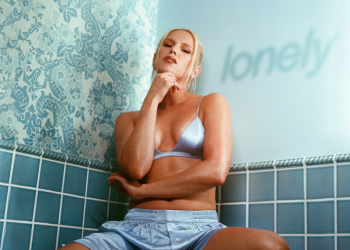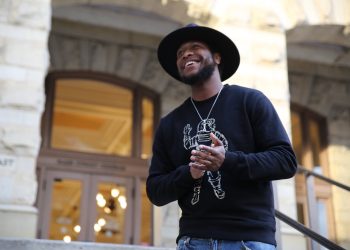Late-1980s and 1990s superstar, Paula Abdul has experienced immense success as a singer-songwriter, choreographer, and in her most recent years, as a judge on the FOX hit program ‘American Idol’. Abdul’s journey on the show has been a rocky one though.
Continuous public and private conflict with fellow judge Simon Cowell, as well as snide remarks about the diva having an alcohol addiction and being an airhead has played out in the media for some time.
While Abdul was being interviewed by Julie Chen on ‘CBS Sunday Morning’ to promote her new CBS reality show ‘Live to Dance,’ where amateur dancers will compete for a half-million-dollar prize, the singer took the opportunity to address the public’s misconceptions as well.
“I am intelligent. Having a brain – that’s a concept, yes, with Paula Abdul. I have a brain,” says the ex-judge.
Abdul goes on to reveal that her relationship with Cowell was worse off-air. “I was the Lucy, to his Desi,” she admits.
She then confronts the allegations about her drinking problem saying, “I’ve never had a drinking problem. Even though I’ve been in this business for quite some time, I’ve never physically been drunk in my life. I’ve never been drunk in my life. I don’t use recreational drugs. But I am goofy. It’s Paula. And even the people on ‘Idol’ know that none of that existed, ever.”
The side of Abdul fans witnessed on ‘American Idol’ is one the artist claims does not reflect her. Hopefully audiences will be able to experience the real Abdul during ‘Live to Dance’.
Paula Abdul has been a celebrity for decades, but her reputation is often unfairly tarnished by rumors of being “ditsy” and “drunk.” In this article we’ll explore the truth behind these allegations, and delve into why they have remained so persistent in spite of Abdul’s success as an entertainer.
For many years Paula Abdul has been associated with some unflattering stereotypes; she was frequently labeled as “ditsy” or even worse, “drunk”. But if you take a closer look at her career it becomes apparent that there is more to Miss Abdul than meets the eye. From choreographer to singer to judge on American Idol, she has consistently demonstrated a level of professionalism that debunks any notion that she lacks intelligence or sobriety.
In fact, such adjectives are often used against strong female figures who challenge traditional gender roles. We will examine how popular culture has impacted perceptions about Paula Abdul and consider how society can reframe its understanding of successful women like her.
Overview Of Allegations
Throughout her career, Paula Abdul has been the subject of various rumors and allegations. The most prominent among them are that she is “drunk” or “ditsy.” Despite these claims, Abdul maintains that they are baseless and false.
In response to the accusations, Abdul released a statement in which she addressed each allegation one by one. She denied any involvement with drugs or alcohol, calling such claims “ridiculous” and “hurtful.” Her team also released a video showing her performing complex dance routines without assistance – further refuting the notion of her being drunk on camera.
Abdul concluded by stating that it was insulting to be judged based off of unfounded gossip and speculation. She encouraged others to take similar action if faced with similar situations, emphasizing the importance of standing up for oneself during times of adversity.
Reactions To Controversy
The controversy surrounding Paula Abdul sparked a range of reactions from the public. Many people voiced their support for her, praising her for standing up to those who unfairly judged her. Others believed that she was making excuses and not taking responsibility for her actions.
Those in favor of Abdul argued that it is wrong to judge someone based on rumors and speculation, without concrete evidence or proof. They also highlighted the importance of self-respect and believing in oneself during times of adversity. These individuals encouraged others to take similar action when faced with similar situations and praised Abdul for speaking out against such allegations.
At the same time, some critics claimed that Abdul’s response was inadequate and accused her of deflecting blame rather than owning up to any wrongdoing. However, most were quick to point out that this type of behavior is typical among celebrities and should be taken into context before drawing conclusions about an individual’s character or intentions. Ultimately, despite what side one takes on this issue, both sides can agree that no one should ever be subjected to unfair judgment due to unfounded gossip or speculation.
Conclusion
I. Reflection on the Issue
Throughout this controversy, I have been reminded of how quickly rumors and false accusations can spread. It’s important for us to be critical consumers of news so that we don’t fall prey to unsubstantiated claims. Paula Abdul is a prime example of how one person can easily become the victim of malicious gossip without any proof or evidence.
II. Thoughts on Rumors
We must realize that even when people are in the public eye, they still deserve respect and privacy. We should think twice before believing what we hear about others because it could very well be untrue; no matter who it involves. As much as we might enjoy juicy stories about celebrities, ultimately these baseless allegations cause more harm than good.
III. Conclusion
In conclusion, I believe it is our responsibility to be mindful of other peoples’ reputations, whether they’re famous or not. Before spreading rumors or speculating about someone else’s life, ask yourself: Is this something I would want said about me? If not, then you shouldn’t share it with anyone else either!
Since 2005, Singersroom has been the voice of R&B around the world. Connect with us via social media below.








